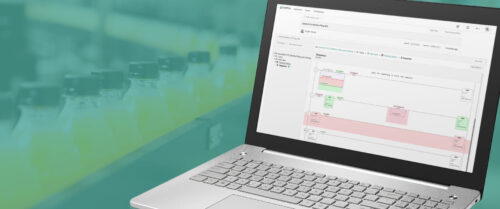The Path Forward: Link Technology and Business
Andrew McDonald is responsible for the management of Unilever's strategic program relating to process control and automation. A degreed electrical and electronic engineer, he is a Chartered Engineer and a member of the Institution of Electrical Engineers (U.K.). His career has included work with electrical and system integrators, control engineering roles on various waste management and decomm...
Click here to read the expanded version of the article.
Andrew McDonald is responsible for the management of Unilever’s strategic program relating to process control and automation.
A degreed electrical and electronic engineer, he is a Chartered Engineer and a member of the Institution of Electrical Engineers (U.K.). His career has included work with electrical and system integrators, control engineering roles on various waste management and decommissioning projects within the U.K. nuclear industry, followed by focus on batch process control in the pharmaceutical and consumer packaged goods industries.
Among his current focus areas are quantifying and promoting the value of control and automation for manufacturing. McDonald also is active with visionary projects, investigating what manufacturing facilities will look like in future and what automation systems will be required to support them.
In your experience, what do you consider to be the top three advances made in control and automation over the past 50 years? Which of these do you think is the most important and why?
Based on nearly 20 years of personal experience, I would place the acceptance of PC-based systems within the overall control system of a production facility foremost in the category of technology advances. Another notable advance would be the remarkably high performance of programmable electric systems and their associated controllers with ever-wider functions—along with the wealth of software tools that are available as standard.
Still another major advance for control and automation are the various intelligent field devices and plant-floor networks now available to engineers and designers.
I firmly believe that all three of the advances mentioned contribute to high quality, robustness, and cost-effective solutions for manufacturers as well as product consumers.
What do you think will be among the next significant advances in the control, automation, and instrumentation arena in the next five to 10 years, and then, crystal-ball gazing, 50 years into the future?
For me, the practical application of distributed artificial intelligence and intelligent software agents will be the next breakthrough. These forward-looking approaches strike me as ones needed to move automation to the next higher level of intelligence.
To have distributed, networked manufacturing systems operate autonomously and cooperatively achieve common goals, these so-called Holonic Manufacturing Systems will need to have the ability to automatically adapt to changing circumstances. In turn, these manufacturing systems will create real-time agility in the supply chain.
What will be the biggest challenges facing engineering in the next decade with regard to plant infrastructure, technology, and the business of manufacturing in general?
The main challenge for the engineering community, looking forward, is managing obsolescence and creating the business case to migrate from obsolete systems to current or developing technology. Many companies have control systems manage their manufacturing processes; however, in some cases a significant proportion of the system’s components are obsolete or unsupported. As a result manufacturing engineers face a crucial issue: How can solid business cases be built to eliminate the old systems and replace them with up-to-date systems, which are more easily supported?
To advance their careers within manufacturing, what should engineers focus on in the next 10 years?
It’s imperative that engineers become more business-oriented in their daily activities and be able to talk to management using business vocabulary. As an engineer working in automation—as well as an end-user of technology—I have had to learn to become better at business issue definition, identifying the correct experts to help develop options, then selecting and executing the best solution.
I was trained to be good at creating solutions. My role is to identify the problem, quantify the business value of solving the problem and then, working with partners, create the lowest lifecycle cost solution. To do all that, I need to be aware of the potential of technology, but not an expert in all its aspects. Engineers must place high priority on developing a strong set of project- management, strategy-influencing, risk-management, and leadership skills.
Prior to upgrading controls, automation, and instrumentation, some organizations examine processes and culture as well. Can you provide an example, based on your experiences, in which paying attention to culture and processes helped the organization’s automation implementation?
We have worked with a partner to develop a process that enables Unilever to deploy long-term investment plans for management of legacy systems. The approach we took was very much business focused and it required training technical people in a number of skills relating to business-case development and option evaluation. It resulted in a robust investment plan due to several factors: Method of conducting the study; the way it was presented; and the quantification of costs, benefits, and risks. Unilever’s technical community now has the ability to be more proactive and bring solutions to the business rather than operating in a reactive mode.
I think that company culture is an important consideration when contemplating organizational changes. New solutions bring new opportunities and the people closest to the operation have to be brought along as well in the change process.
Andrew McDonald, global automation and control technology manager at Unilever Home and Personal Care North America (HPC-NA), has a focus on shaping the future of automation technology. He is one of the co-chairs of OMAC (Open Modular Architecture Controls) User Group, active in OMAC’s Packaging Working Group, and has authored World Batch Forum papers. ‘Distributed artificial intelligence and intelligent software agents will be the next breakthrough in control, automation, and instrumentation,’ he says.
Do you have experience and expertise with the topics mentioned in this content? You should consider contributing to our CFE Media editorial team and getting the recognition you and your company deserve. Click here to start this process.





